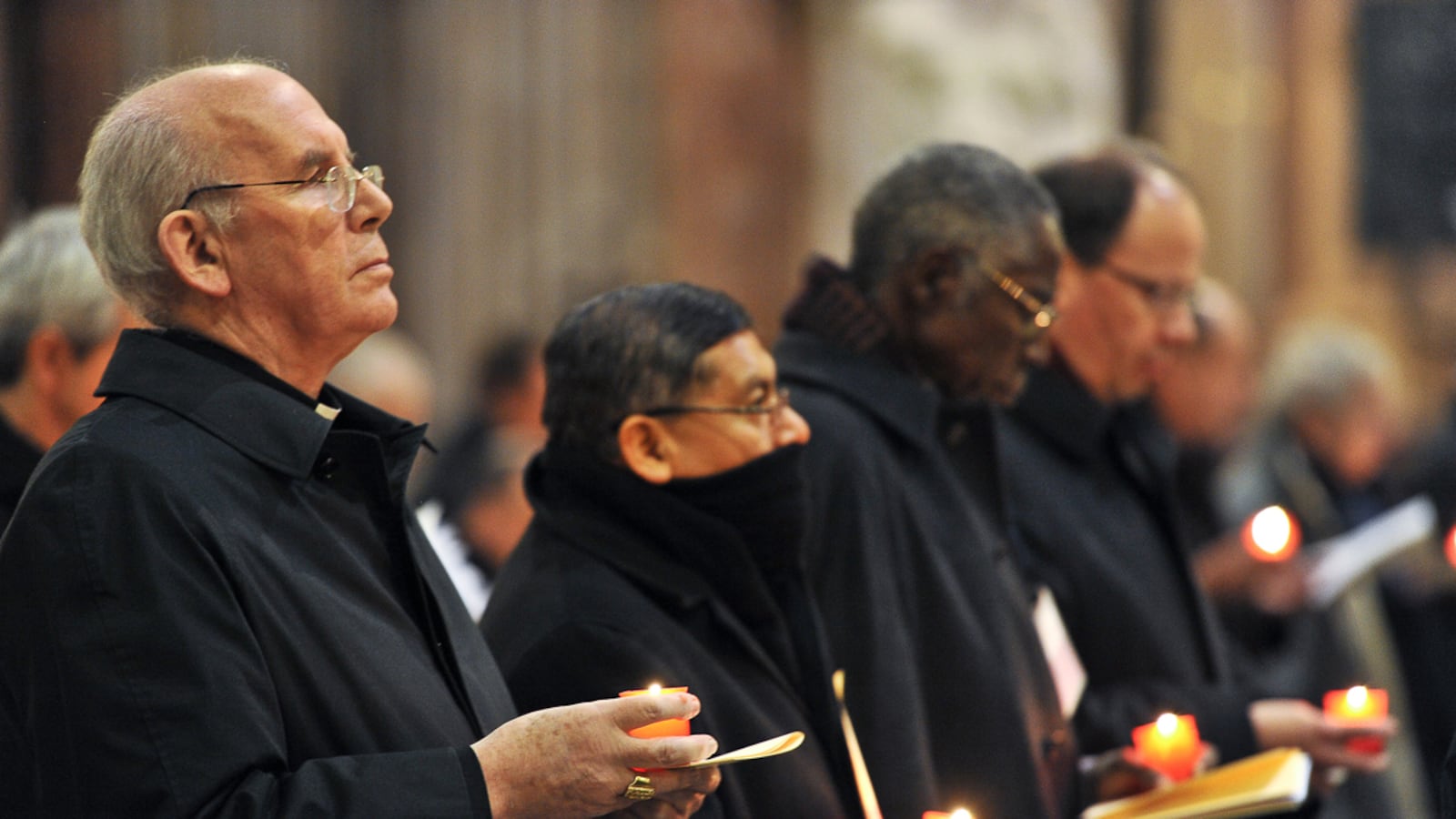For fifty years, Cornelius Rogge tried to tell the world this story. “People thought I was crazy,” he says. It was a story about a man he once knew who had been sexually abused by a Roman Catholic brother—and who was then castrated, when he dared to report the crime.
Rogge tried to tell journalists about it, but no one would listen. In 2010, he wrote his story in a letter to Wim Deetman, chairman of the commission that investigated sexual abuse in the Roman Catholic church in the Netherlands. Still no action.
Then he contacted Joep Dohmen, a journalist from the Rotterdam-based newspaper NRC Handelsblad, the colleague who I worked with to break the story of Dutch church sex abuse back in 2010. Dohmen and I, working for our respective media but sharing information, uncovered a series of scandals in boarding schools and parishes that led hundreds of abuse victims to step forward and tell their story. Our work led the Dutch bishops to install a commission of inquiry that completed its work last December. When Rogge called Dohmen, that’s when things finally started to move.
Over the phone, Rogge told Dohmen how he had met Henk Heithuis when the young man arrived, extremely ill, at his mother Thea’s home in Amsterdam in 1957. He’d never forgotten the stories Henk told of sexual abuse he suffered in the care facilities where he grew up. Especially the story about abuse by a monk named Gregorius, the brother superior at Harreveld, the Roman Catholic boarding school where Henk lived from 1950 to 1953.
Henk said the monks there preyed on the boys,” Rogge told Dohmen. “When he was seventeen he became the brother superior’s plaything. Henk compared the place to a bordello. We could hardly believe our ears.”

Rogge, a 79-year-old sculptor living in a converted farmhouse near the Dutch city of Zutphen, showed me a stack of letters from the 1950s. Some were in his own hand; others were from his brother, their deceased mother, and their friend, Henk Heithuis. Rogge and his older brother Ysbrand had kept the letters because the story they documented was so astounding. And sitting at Rogge’s dining room table, the sheer madness of this story began to sink in. “If this is true,” I thought, “then the world is crazier than I imagined.”
In 1956, Henk, then 20-years-old and legally a minor, reported the clerical abuse to the police. Hearing about the abuse, the police treated him as if he were insane, bringing him to a Roman Catholic psychiatric hospital where he was involuntarily committed. People there told detectives Henk was “a homosexual, untrustworthy, a liar and mentally disturbed.”
One month later, at St. Josephs hospital in the southern Dutch town of Veghel, Henk was surgically castrated or “eugenized,” as the hospital records put it, using a term previously attributed to the Nazi program of systematically sterilizing the mentally and physically handicapped.
In one of his letters, Henk wrote about how he was “maimed.” The surgeon, he told Rogge, played records to calm the other boys who were in the hallway, waiting to undergo the same procedure.
“I didn’t believe him,” Rogge said. But when Henk took off his pants to show him, he was shocked to see the truth. “When he undressed I saw that, indeed, there was nothing left there where his testicles used be. It blew us away to see that this was not a joke. He was mutilated.”
In a series of articles for his paper, Dohmen reconstructed how Henk tried to get his life back on track after his discharge from St. Josephs. In April 1957, with nowhere to live, Henk joined the crew of a Dutch cargo ship headed for Indonesia. But on board, his body swelled up grotesquely and he had wild mood swings caused by the hormonal imbalance following his castration. When the ship docked in Kobe, Japan, Henk went ashore and sought help.
With the help of the Dutch consul there, he found Ysbrand Rogge, Cornelius’s brother. Ysbrand, a merchant banker in Kobe, arranged for Henk to fly home to Amsterdam by KLM jet, and he ensured that his mother Thea would be waiting for Henk when he got there. Thea took him in and got him medical help.
Thea Rogge wrote in one of the letters her son kept that the lawyers and doctor who’d helped Henk had found nine more cases—another nine boys who’d been castrated in similar circumstances. Dohmen found documents that show that there were more castrations, and he knows the identity of at least one more person, but suspects there could be many more.
Using Thea Rogge’s letters, Dohmen traced the rest of Henk’s story. He discovered that Henk, once nursed back to health, had moved out of her house and found a place of his own.
Lawyers acting for Henk had filed suit against the psychiatric institution and the child welfare board that approved the minor’s involuntary commitment and castration, demanding 150,000 guilders or about $100,000, at the time, in damages.
A few weeks after Henk reported brother superior Gregorius to the police, Gregorius was spirited out of Harreveld boarding school. Records in the Dutch state attorney’s office reveal that he was never prosecuted, for “lack of evidence.” His congregation quickly moved him to New Glasgow, in Nova Scotia, where he helped set up a home for the mentally handicapped and worked for many years, according to a Dutch newspaper.
Gregorious, whose given name was Gregory van Buuren, died in 1993 of natural causes, at the retirement home of his congregation in the Netherlands.
In a letter dating from 1957, Henk wrote that it was his duty “to convince those who decide on the law that this was a crime which can in no way be compensated, but for which society will have to take full responsibility.”
But Henk would never get to see justice done. He died in a car accident on October 25, 1958. The following day, when Cornelius Rogge went to Henk’s flat to pick up his clothing, he was told a policeman had already been there. Henk’s personal documents, including those about the castration lawsuit, were gone.
In his research, Dohmen found evidence of extensive sexual abuse at Harreveld boarding school, and several monks were later convicted. He also found that Vic Marijnen, the chairman of the board at Harreveld boarding school, who later served as Dutch prime minister, had written a letter to the Dutch queen, requesting a pardon for those convicted of abuse at his school.
Both this, and the information about castrations, was known to the Deetman Commission that investigated church sex abuse in the Netherlands. But neither matter was mentioned in the lengthy Deetman report published in December.
Although his story has now finally come to light, Henk is still awaiting justice.






